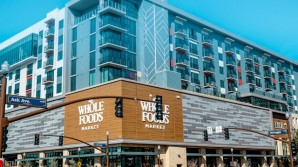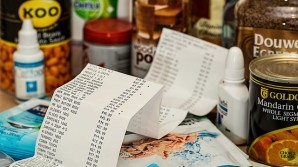Overview
-- Global restaurant operator Burger King has enhanced credit protection
measures, a result of both profit growth and debt reduction; we expect those
trends to continue.
-- We are raising our ratings on the company one notch, including the
corporate credit rating to 'B+' from 'B'.
-- The stable outlook incorporates further credit ratio enhancement in
2012 resulting from positive comparable-store sales, international store
expansion, and cost management.
Rating Action
On Aug. 15, 2012, Standard & Poor's Ratings Services raised its corporate
credit rating on the Miami-based Burger King Corp. to 'B+' from 'B'. The
outlook is stable.
At the same time, we raised the issue-level rating on the company's senior
secured credit facility to 'BB' from 'BB-'. We rate the facility two notches
above the corporate credit rating, and the recovery rating on the facility
remains '1' indicating our expectation of very high (90%-100%) recovery of
principal in the event of payment default.
We also raised the issue-level rating on the company's senior unsecured notes
to 'B' from 'B-'. We rate the notes one notch below the corporate credit
rating and the recovery rating remains '5', indicating our expectation of
modest (10%-30%) recovery of principal in the event of default.
In addition, we raised the rating on the company's discount notes to 'B-' from
'CCC+'. We rate these notes two notches below the corporate credit rating, and
the recovery rating remains '6', which indicates our expectation of negligible
(0%-10%) recovery of principal in the event of default.
Rationale
The rating action comes after Burger King's positive operating trends in 2012.
Year-to-date EBITDA is up close to 20%, reflecting comparable-store sales
growth of 4.5%, international restaurant expansion, and administrative cost
management. While we expect sales trends may moderate for the remainder of
2012, we are still forecasting meaningful profit growth. Moreover, the company
has generated significant free cash flow and reduced debt, and we foresee this
continuing.
The rating on Burger King reflects our view of the company's financial risk
profile as "highly leveraged," based on forecasted credit ratios. We also
assess its business risk as "fair," which incorporates the highly competitive
nature of the industry and its susceptibility to economic conditions that
somewhat offsets Burger King's global presence, domestic market share, and
recent operational improvements.
The company's first-half performance was moderately better than we
anticipated, and generally better than industry peers. We believe its new
product offerings, and support from its marketing campaign led to the
comparable-store sales growth domestically. We expect that trend to moderate
for the remainder of 2012 because of weak economic conditions and increased
competition within the industry, but we foresee these sales remaining
positive. Burger King's profits also benefited from administrative cost
management, which was down 4.5% year to date. Moreover, the company recently
completed a number of refranchising transactions this year, which we believe
will also be margin accretive.
Below are our more detailed operating assumptions for Burger King during 2012:
-- Systemwide comparable-store sales growth of about 4%;
-- Close to 500 new restaurants-mostly by franchisees internationally;
-- Administrative expense to be down between 5%-7%;
-- EBITDA in the range of $650 million-$660 million, up from $585 million
in 2011; and
-- We also assume a portion of excess free cash flow will be allocated
toward debt reduction.
This scenario would lead to the following credit ratios, adjusted primarily
for operating leases, at the end of 2012:
-- Debt to EBITDA in the low-5x range;
-- EBITDA coverage of interest near 2.5x; and
-- Funds from operations (FFO) to debt near 12%.
These credit ratios are indicative of a highly leverage financial risk profile.
We generally view the restaurant industry as weak, but Burger King's market
share and its largely franchised restaurant system provide some operational
stability and, thus, a better business risk assessment than many others in the
industry. However, we believe Burger King's performance will not only be
vulnerable to consumer spending trends, but that it may also be susceptible to
incursions from competitors like McDonald's Corp. and The Wendy's Co. in the
fast food arena. Given high unemployment and potentially tepid domestic job
growth, the industry may engage in further aggressive promotional discounting,
which could hurt sales and profits.
Liquidity
We view Burger King's liquidity as "adequate," which indicates our view that
cash sources should exceed uses by a ratio of at least 1.2 to 1.0 over the
next two years. The company's sources (as of June 30, 2012) include $378
million of cash, which we consider mostly excess; $138.5 million of revolving
credit availability; and FFO, which we forecast to be approximately $375
million over the next year. We expect uses to primarily consist of capital
spending of about $60 million, term loan amortizations, and debt reduction.
We base our assessment of Burger King's liquidity profile on the following
expectations and factors:
-- We expect sources to cover uses by more than 1.2x over the next two
years.
-- We also expect that sources would exceed uses, even with a 15% drop in
EBITDA.
-- We believe the company has adequate headroom under maintenance
financial covenants.
-- The company has no meaningful near-term maturities.
Recovery analysis
For the complete recovery analysis, see Standard & Poor's recovery report on
Burger King, to be published as soon as possible on RatingsDirect.
Outlook
Our outlook on Burger King is stable, incorporating our expectation that
operating trends will continue to improve in the second half of 2012 and that
Burger King will use free cash flows to reduce debt, leading to leverage in
the low-5x area by the end of 2012.
We would consider a higher rating if we believed Burger King could further
improve credit ratios such that adjusted leverage would be around 4.5x and
coverage was near 2.8x. We do not foresee that occurring in 2012. However, if
Burger King improved EBITDA to the range of $720 million-$730 million and the
company reduced debt by an additional $350 million from current levels, we
estimate the company could reach those thresholds.
We could consider a lower rating if operating trends worsened and the company
ceased to repay debt with excess cash flow. For example, if leverage was in
the mid-5x area and coverage in the low-2x area, we would likely lower the
rating. This could occur if the company meets our expectations for 2012, but
in 2013, EBITDA declined by about 16%-18% and the company did not repay any
debt with excess cash flow.
Related Criteria And Research
-- Issuer Ranking: U.S. Restaurants & Retail, Strongest To Weakest, April
30, 2012
-- Industry Report Card: Our Credit Outlook Remains Slightly Negative For
The U.S. Retail Industry This Year, April 30, 2012
-- Liquidity Descriptors For Global Corporate Issuers, Sept. 28, 2011
-- Business Risk/Financial Risk Matrix Expanded, May 27, 2009
-- Key Credit Factors: Business And Financial Risks In The Retail
Industry, Sept. 18, 2008
-- 2008 Corporate Criteria: Analytical Methodology, April 15, 2008
Ratings List
Upgraded
To From
Burger King Corp.
Burger King Capital Holdings LLC
Corporate Credit Rating B+/Stable/-- B/Stable/--
Burger King Corp.
Senior Secured BB BB-
Recovery Rating 1 1
Senior Unsecured B B-
Recovery Rating 5 5
Burger King Capital Finance Inc.
Burger King Capital Holdings LLC
Senior Unsecured B- CCC+
Recovery Rating 6 6
© Thomson Reuters. All rights reserved.
Editor’s Pick



















